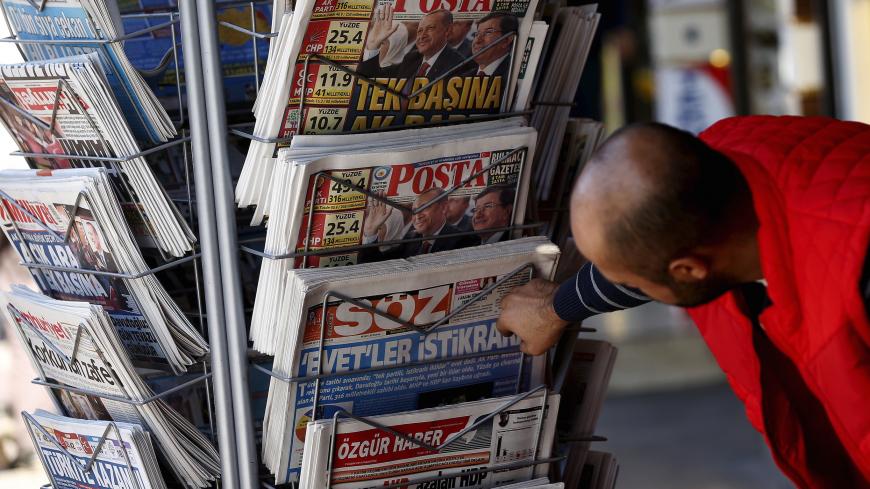The US trial of Turkish banker Mehmet Hakan Atilla, featuring the notorious Iranian-Turkish gold trader Reza Zarrab as a witness, has Turks glued to Twitter. Zarrab testified Nov. 29 that he bribed Turkey's former Economic Minister Mehmet Zafer Caglayan in 2012 by paying him more than $50 million to help Iran evade US economic sanctions.
The amount of alleged bribes would most likely be sufficient to generate serious political turmoil in any given democracy. The allegations of corruption reach all the way up the political ladder. On Nov. 26, Turkish President Recep Tayyip Erdogan announced he will resign if the main opposition party can prove its accusations that the Erdogan family is hiding millions of dollars in foreign bank accounts. Where does all this money come from? What is the wealth of the Erdogan family and senior politicians? These questions are difficult for the Turkish media to pose under the government's watchful eye. So rather than ask, some prominent journalists are arguing that the public doesn't care all that much about corruption — despite the Zarrab case going viral on social media.



